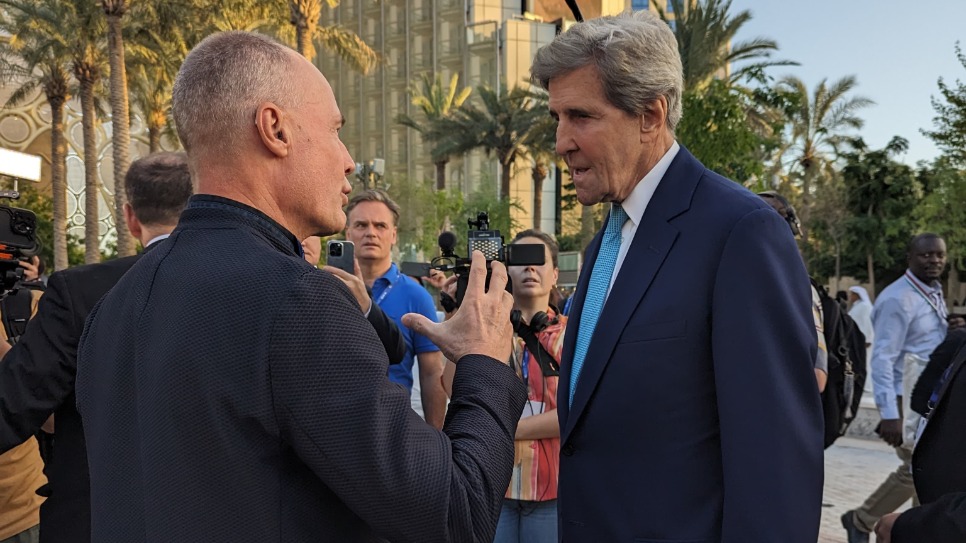News - December 2, 2023
COP 28 - day 1: already a good thing done?


Written by Bertrand Piccard
Last year, in Sharm-El Sheikh, the call for compensation was brandished by the countries of the Global South as a precondition for acceptance of the agenda, but for a year there was lots of noise for little result. This time, COP President Al Jaber dispatched it in no time at all. In the midst of the routine procedural items, in the general torpor that had also lulled me to sleep, no opposition arose and the long-awaited principle of this fund was accepted, to everyone's surprise. Unless it was thanks to meticulous prior diplomacy. The audience, visibly amazed that it had gone through so easily, rose to offer a standing ovation.
Let's look a little further ahead.
This was the first big news to emerge from COP 28 in Dubai: the creation of a "Loss and Damage Fund" managed by the World Bank, formalising the contributions of developed countries to the Global South to tackle the effects of climate change.
Often regarded as secondary, or even less, this Fund was mentioned and discussed for a long time, but nothing concrete ever saw the light of day at previous COPs. The proposed hosting of the Fund by the World Bank gave rise to heated debate - though the issue seems to have been settled by entrusting the institution with management of the fund for an initial 4-year period.
General enthusiasm then, felt here in Dubai and in the international media. It's good news indeed and a necessary step for these countries already hit hard by the climate crisis even though they have contributed little to it. You only have to look at the demographic trajectories to understand that what is decided today in these countries will have a major impact on tomorrow's world. So it is imperative to bring the Global South on board when it comes to climate action. And the historic agreement to establish this Fund on this first day of the COP is a key step in that direction.
But while it's certainly a good thing that's been done, is it a good thing done well?
While talking to my team, one of my colleagues commented on the news by saying "that's cute". This comment, which may surprise, is linked to two aspects; firstly, the sum promised at the time of writing - 460 million USD - is but a drop in the ocean compared to both the needs (estimated to be at least 100 billion USD per year), and the 4 trillion USD in net revenues earned by oil and gas companies last year. Or relative to the 1.3 trillion dollars that are used to subsidise fossil fuels around the world every year, according to the IMF
Beyond the question of volume, there is also the question of the nature of the promised announcements: would these funds be disbursed in the form of donations? Concessional loans? Will there be additional funding or reallocations? What is the timetable for disbursements?
If we want to move from symbolism to impact, the key is for these funds to trigger a certain dynamic in the deployment of clean and profitable solutions, for the benefit of vulnerable populations. There is no reason why access to clean energy for small farmers should not also translate into improved productivity and, ultimately, socio-economic progress. There is no reason not to ensure that the implementation of the funds is carried out in a transparent manner.
We absolutely must link these 'loss and damage' funds to a concrete plan for implementing clean solutions, and renewable energies in particular. Not doing so is like announcing a fund with no real resources: it's cute, yes, but it won't help the situation in the face of the growing challenges facing these countries.
First published by La Repubblica, La Tribune, EFFE Verde and Forum Nachhaltig Wirtschaften.

Written by Bertrand Piccard on December 2, 2023


